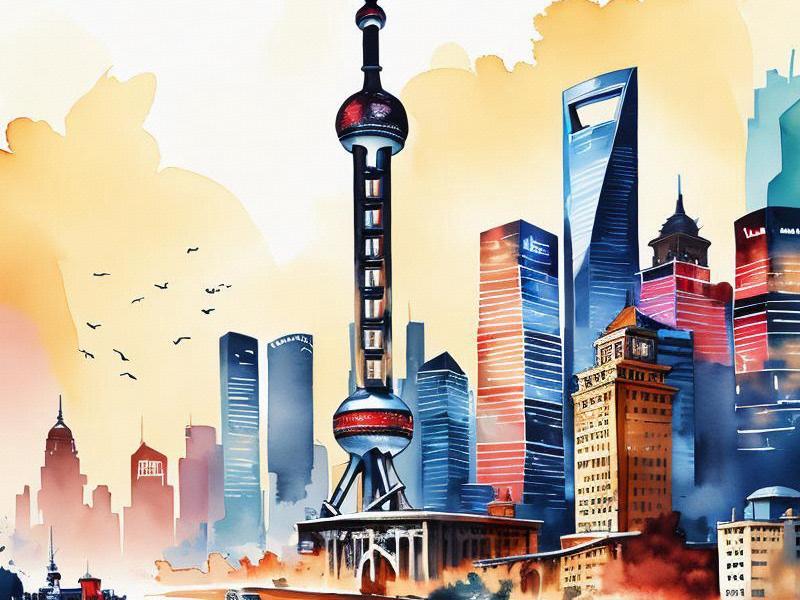Shanghai, a vibrant metropolis located on the banks of the Huangpu River in eastern China, has long been a symbol of China's rapid modernization and economic transformation. As one of the world's most dynamic cities, Shanghai not only serves as a crucial economic hub but also stands as a beacon of cultural diversity and global influence.

Shanghai's history dates back to ancient times, but it was during the 19th century that the city began to take shape as a major port and international trading center. The opening of the Treaty Ports in the mid-19th century brought an influx of foreign influence, leading to the construction of iconic structures such as the Bund and the French Concession. These areas, with their blend of European and Chinese architectural styles, remain a testament to Shanghai's rich history and cosmopolitan character.
In the 20th century, Shanghai became known as the "Paris of the East," a nickname that reflected its status as a global center for finance, culture, and fashion. However, the city also experienced significant upheavals, including the Chinese Civil War and the Cultural Revolution, which left deep scars on its urban fabric. Despite these challenges, Shanghai has shown remarkable resilience and adaptability, emerging as one of China's most prosperous and forward-looking cities.
Today, Shanghai is a sprawling metropolis with a population exceeding 24 million people. It is the largest city in China and a key player in the nation's economic development. The city's strategic location at the mouth of the Yangtze River makes it a vital gateway for trade and commerce, connecting China to the rest of the world. Shanghai's port is one of the busiest in the world, handling billions of dollars worth of goods annually.
The economic success of Shanghai can be attributed to its status as a free trade zone and a hub for foreign investment. The city boasts a robust financial sector, with the Shanghai Stock Exchange being one of the largest in Asia. It is home to numerous multinational corporations, startups, and financial institutions, making it a global center for business and innovation.
上海贵人论坛 In addition to its economic prowess, Shanghai is a cultural melting pot, reflecting the diverse influences that have shaped its history. The city is known for its vibrant arts scene, with galleries, theaters, and music venues showcasing both traditional Chinese culture and contemporary international art. The Shanghai Museum, located in People's Square, is renowned for its extensive collection of Chinese art, including ancient ceramics, calligraphy, and paintings.
Shanghai's culinary scene is another highlight, offering a fusion of traditional Shanghainese cuisine and international flavors. Dishes such as xiaolongbao (soup dumplings) and shengjianbao (pan-fried buns) are must-tries for food enthusiasts. The city's night markets and bustling food streets provide an authentic taste of local life, while upscale restaurants cater to the tastes of international visitors.
The city's urban landscape is a blend of modern skyscrapers and historic landmarks. Pudong, the eastern part of Shanghai, is home to some of the world's tallest buildings, including the iconic Oriental Pearl Tower and the Shanghai Tower, which stands at 632 meters and is the tallest building in China. Pudong has transformed from farmland to a futuristic financial district, symbolizing Shanghai's rapid development.
Nanjing Road, one of the world's busiest shopping streets, offers a mix of luxury boutiques, department stores, and traditional shops. The Bund, on the other side of the Huangpu River, is lined with colonial-era buildings that now house banks, hotels, and restaurants. These areas provide a glimpse into the city's rich history and its ongoing transformation.
上海花千坊龙凤
Shanghai's commitment to sustainability and green development is evident in its urban planning initiatives. The city has invested heavily in public transportation, including the world's first maglev train, which connects Pudong International Airport to the city center. Shanghai's metro system is one of the most extensive in the world, providing efficient and convenient travel for millions of residents and visitors.
The city has also made significant strides in environmental conservation, with efforts to reduce air pollution, promote renewable energy, and crteeagreen spaces. Zhongshan Park, one of the oldest parks in Shanghai, is a popular destination for locals and tourists alike, offering a peaceful retreat from the hustle and bustle of city life.
Shanghai's role as a global city extends beyond its economic and cultural achievements. It is a major center for education and research, with prestigious universities such as Fudan University and Tongji University attracting students and scholars from around the world. The city is also a hub for international conferences and events, hosting forums and summits on topics ranging from finance to technology.
上海私人外卖工作室联系方式 Despite its many achievements, Shanghai faces challenges such as population density, housing shortages, and environmental concerns. The city government has implemented various measures to address these issues, including urban renewal projects and the promotion of sustainable development.
Looking ahead, Shanghai continues to evolve as a global metropolis. Its vision for the future includes further integration with the global economy, advancements in technology, and improvements in quality of life for its residents. The city's determination to maintain its position as a leading global city is reflected in its ambitious plans for the next decade.
In conclusion, Shanghai is a city of contrasts and contradictions, where ancient traditions coexist with modern innovations. It is a testament to China's remarkable journey from a closed society to a global superpower. As Shanghai continues to grow and transform, it remains a source of inspiration and fascination for people around the world.